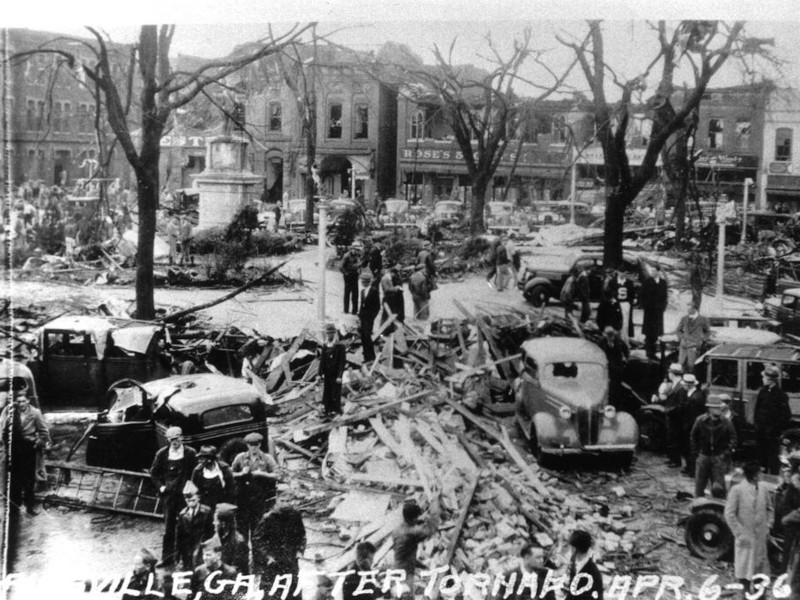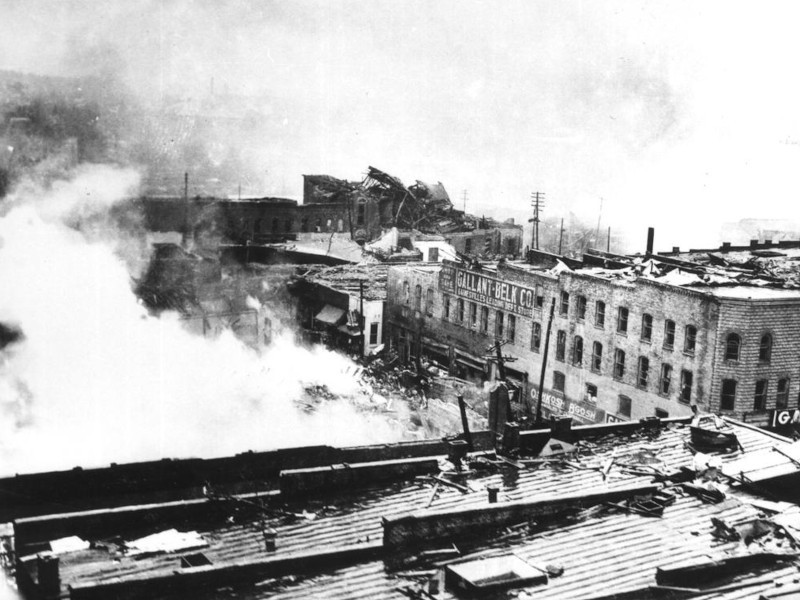On April 6, 1936, 85 years ago Tuesday, the fifth deadliest tornadoes in United States history hit the City of Gainesville, killing 203 people, and injuring 1,600.
While the event is often referred to as the “Gainesville Tornado of 1936,” Glen Kyle, executive director of the Northeast Georgia History Center, said it consisted of two main funnel clouds which damaged the downtown square, and a third which damaged the Brenau University campus.
According to an exhibit on the tornadoes from The Digital Library of Georgia, the two main funnels came in from the west or southwest around 8 a.m. and eventually came together near downtown as they swept across the city. The two funnels would eventually separate again, and the third tornado would spawn near Brenau, Kyle said.
According to the Tornado Project, about 750 homes were destroyed in the city and 254 were severely damaged. The damage in Gainesville totaled about $12,500,000.
The power grid, water system and communications systems were completely disrupted during the incident, which caused several immediate problems.
Kyle said those who were not in Gainesville did not know about the destruction caused until citizens went to other nearby towns to use their phones.
Aside from this, fires in the city became a major issue in the aftermath of the storm, the deadliest of which was at the Cooper Pants Factory, which was on the corner of West Broad Street and Maple Street.
Employees at the factory, who were mostly young women and children, went into the basement of the factory for protection from the tornado. Unfortunately, the building collapsed and caught fire, trapping many of the employees, and killing at least 60 of them.
Because the water system was knocked out of commission, and nearly all major roadways were blocked, fighting fires like the one at the Cooper Pants Factory became an extremely difficult task for fire crews.
The Cooper Pants Factory incident became the single deadliest incident during the 1936 tornado.
When it comes to the destruction caused by the tornado, two key local government facilities were destroyed – the Gainesville City Hall and the Hall County Courthouse.
While so much of Gainesville had been destroyed in the event, this set up the city for a great recovery in the coming years, according to Kyle.
“When it’s built back over the next couple of years, Gainesville is poised for, in effect, almost a renaissance because everything is new,” Kyle said. “They have the latest most up-to-date water systems, telephone systems, fire engines and they set up some early warning systems after this too.”
This recovery was helped by federal funds. According to The Digital Library of Georgia, federal officials distributed $2,500,000 in immediate relief funds to cope with the Tupelo-Gainesville Tornado Outbreak, and the U.S. Senate passed a bill that provided $50,000,000 in rehabilitation loans for those affected by the storms.
President Franklin D. Roosevelt also made a trip to Gainesville in the aftermath of the storm. He visited just three days after the incident, on April 9, 1936. While in the city, he met with representatives from the American Red Cross, the Civilian Conservation Corps, the Works Progress Administration and other local officials.
While in the city, he also spoke from his railroad car’s observation platform to a crowd of about 2,000, where he conveyed his condolences and assured them that the federal government would help.
Two years later, in 1938, Roosevelt returned to Gainesville where he would dedicate the new civic center.
For more information on the tornado, watch the above video, which was produced ten years ago for the 75th anniversary of the tornado by the staff of AccessWDUN.











